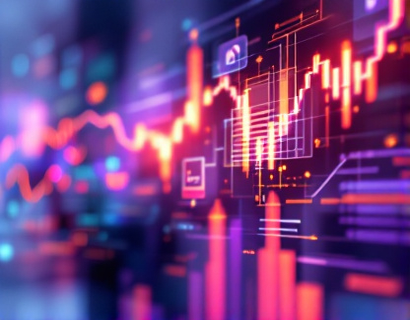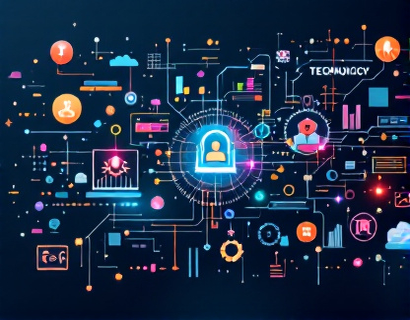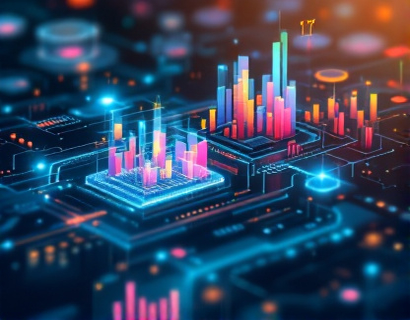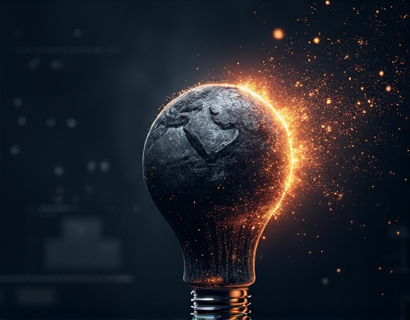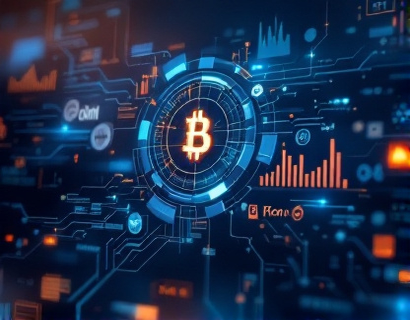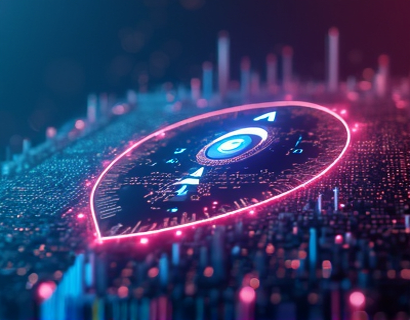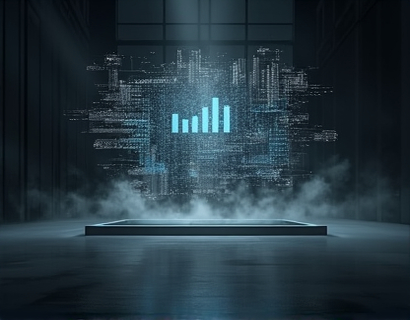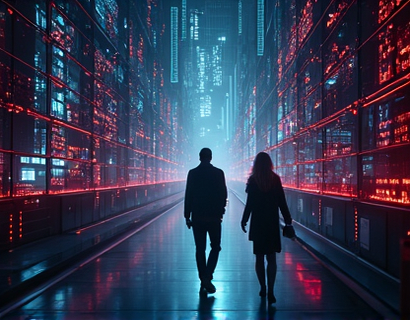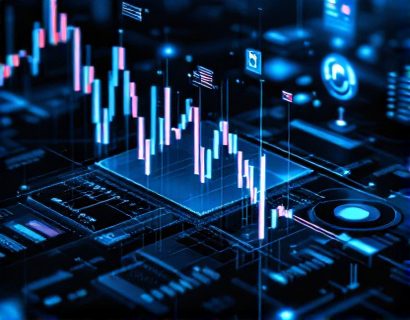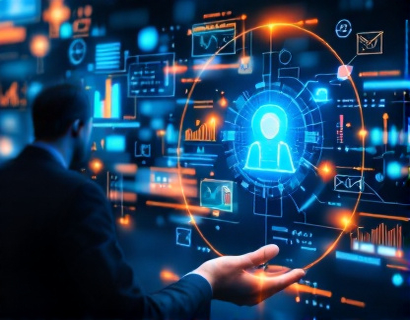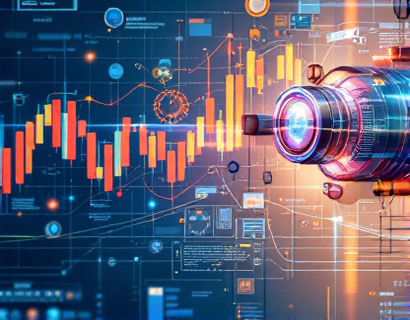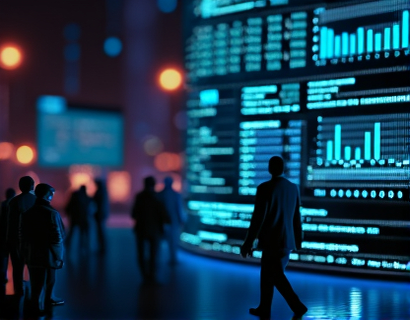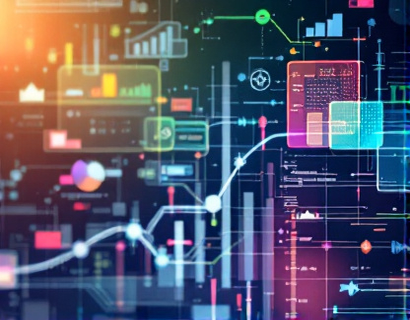Crypto and AI: Pioneering Next-Gen Digital Transformation
The integration of cryptocurrency and artificial intelligence is ushering in a new era of digital transformation, one that promises to redefine user experiences across various sectors. This synergy between blockchain technology and machine learning is creating seamless, efficient, and secure solutions that enhance interactions in the digital age. For tech enthusiasts and early adopters, understanding the potential of this combination is crucial, as it opens doors to innovative applications and services that were once the realm of science fiction.
The foundation of this transformation lies in the unique properties of blockchain technology. Blockchain, at its core, is a decentralized ledger that ensures transparency, immutability, and security. These attributes are invaluable in a world where data breaches and fraud are increasingly common. By leveraging blockchain, transactions can be conducted with a high degree of trust, without the need for intermediaries. This not only reduces costs but also speeds up processes, making it an attractive solution for industries ranging from finance to supply chain management.
Artificial intelligence, on the other hand, brings a different set of capabilities to the table. AI's ability to process and analyze vast amounts of data quickly and accurately makes it an essential tool for enhancing user experiences. Machine learning algorithms can predict user behavior, personalize content, and optimize system performance in real-time. When combined with the security and efficiency of blockchain, the potential for innovation is immense.
Enhanced Security Through Blockchain and AI
One of the most significant benefits of integrating blockchain and AI is the enhancement of security measures. Traditional systems rely on centralized databases, which are prime targets for cyberattacks. Blockchain's decentralized nature distributes data across a network of nodes, making it extremely difficult for hackers to manipulate or steal information. AI can further bolster security by detecting and responding to threats in real-time. Machine learning models can identify unusual patterns and anomalies, triggering alerts and automated responses to mitigate risks.
For instance, in the financial sector, AI-powered systems can monitor transactions for signs of fraud, while blockchain ensures that all transactions are recorded securely and transparently. This dual approach not only protects user data but also builds trust, a critical factor in adopting new technologies. As more organizations adopt these combined solutions, the overall security landscape will continue to improve, paving the way for broader acceptance and use.
Personalization and User Experience
AI's strength in personalization is another area where it shines when integrated with blockchain. Personalized experiences are no longer a luxury but a necessity in today's digital world. AI algorithms can analyze user data to provide tailored recommendations, content, and services. However, the effectiveness of personalization is heavily dependent on the quality and security of the data used. Blockchain ensures that user data is stored securely and that users have control over their information.
For example, in the realm of digital content, an AI system can curate a personalized feed based on a user's preferences and behavior. Blockchain can verify the authenticity of the content and ensure that the user's engagement data is securely stored and managed. This combination not only enhances the user experience but also respects user privacy, a growing concern in the digital age.
Smart Contracts and Automated Processes
Smart contracts, a key feature of blockchain technology, are revolutionizing the way agreements are executed. These self-executing contracts with the terms directly written into code can automate processes, reduce friction, and eliminate the need for intermediaries. When combined with AI, smart contracts can become even more powerful. AI can analyze conditions and predict outcomes, ensuring that smart contracts operate efficiently and effectively.
In the realm of supply chain management, for instance, smart contracts can track the movement of goods, verify authenticity, and ensure compliance with regulations. AI can optimize routes, predict delays, and manage inventory in real-time. This synergy not only streamlines operations but also reduces costs and enhances transparency, benefiting all parties involved.
Decentralized Finance (DeFi) and AI-Driven Investments
The finance sector is one of the most transformative areas where blockchain and AI intersect. Decentralized Finance, or DeFi, is redefining traditional financial systems by offering decentralized alternatives to banking, lending, and trading. AI plays a crucial role in this space by providing advanced analytics and predictive modeling. Machine learning algorithms can analyze market trends, assess risks, and make informed investment decisions.
For example, AI-driven bots can execute trades based on predefined criteria, adapting to market conditions in real-time. Blockchain ensures that all transactions are recorded transparently and securely, reducing the risk of fraud and increasing trust. This combination is particularly appealing to investors seeking more control and potentially higher returns in a decentralized environment.
Healthcare and Beyond
The impact of blockchain and AI extends beyond finance, with significant implications for healthcare and other industries. In healthcare, blockchain can secure patient data, ensuring privacy and compliance with regulations like HIPAA. AI can analyze medical records, identify patterns, and assist in diagnosis and treatment planning. The integration of these technologies can lead to more accurate diagnoses, personalized treatment plans, and improved patient outcomes.
In the Internet of Things (IoT) domain, blockchain can secure the vast amounts of data generated by connected devices, while AI can process and analyze this data to optimize device performance and predict maintenance needs. This synergy is particularly valuable in smart cities, where efficient management of resources and infrastructure is crucial.
Challenges and Considerations
Despite the numerous benefits, the integration of blockchain and AI is not without challenges. One of the primary concerns is scalability. Blockchain networks, especially those using proof-of-work consensus mechanisms, can struggle with high transaction volumes. AI models, particularly those requiring extensive training, demand significant computational resources. Addressing these issues is essential for widespread adoption.
Another consideration is the regulatory landscape. As these technologies evolve, governments and regulatory bodies are beginning to take notice, implementing rules and guidelines to ensure compliance and protect consumers. Staying informed and adaptable to these changes is crucial for organizations looking to leverage blockchain and AI.
Future Prospects
The future of blockchain and AI is bright, with ongoing research and development pushing the boundaries of what is possible. As technology advances, we can expect more sophisticated applications that further enhance user experiences. The convergence of these technologies will likely lead to the creation of entirely new industries and business models, driving innovation and economic growth.
For tech enthusiasts and early adopters, staying at the forefront of this revolution is key. By understanding the potential and challenges of blockchain and AI, individuals can position themselves to capitalize on emerging opportunities. Whether it's developing new applications, investing in promising startups, or simply staying informed, the intersection of cryptocurrency and AI offers a wealth of possibilities for those willing to explore.



